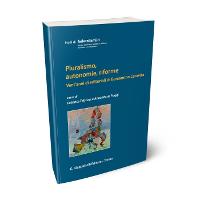
Log in or Create account
FOCUS - Human rights N. 1 - 28/03/2014
Die Konkretisierung der Menschenwürde in Deutschland und Italien: ein Vergleich.
Abstract [It]: La dignità umana appare come un valore sostanziale che ispira e sostiene l’ intera architettura dell’ ordinamento costituzionale. Nondimeno, la sua natura giuridica, di diritto o di principio costituzionale, come anche la sua autonomia di efficacia normativa, appare come un punto controverso, che la stessa giurisprudenza, costituzionale e di merito, ad oggi non è ancora riuscito convincentemente a chiarire. Il saggio, che muove dalle principali declinazioni teoriche (con riguardo essenzialmente alla dottrina tedesca) del valore della dignità umana si concentra essenzialmente su un’ analisi comparatistica relativa a tale valore nell´ ordinamento giuridico tedesco, quale risulta anche dall´ interpretazione del Bundesverfassungsgericht; ed in quello italiano, secondo le interpretazioni che della dignità umana esso danno tanto la Corte di Cassazione che la Corte costituzionale. Le conclusioni sembrano far emergere, nel l’ ordinamento italiano, una intrinseca debolezza della dignità umana quale parametro normativo “ordinario” mentre la stessa potrebbe forse meglio intendersi come clausola di salvaguardia dell’ ordinamento di fronte a casi-limite, in relazione ai quali potrebbe rendersi inconferente il riferimento ai singoli diritti fondamentali.
Abstract [En]: Human dignity appears is a substantial value that inspires and supports the constitutional regulatory structure. Nevertheless, its legal nature, as positive law or constitutional principle, and its regulatory autonomy efficiency appears to be a controversial issue, that the jurisprudence itself, from constitutional and ordinary courts, until today has not yet been able to explain convincingly. This essay, which moves from the main theoretical arguments (basically linked to the German doctrine) about the value of human dignity, focuses essentially on a comparative analysis of this value in the German legal system, which also comes out from the interpretation of the Bundesverfassungsgericht, and in the Italian legal system, athwart the Constitutional Court and Court of Cassation’s interpretation. The findings seems to manifests an inherent impossibility for human dignity to be a positive regulatory parameter in Italian Law, while the same could, perhaps, best be understood as a protection clause of 'order in front of borderline cases, in relation to which it may be irrelevant reference to individual fundamental rights.
Abstract [En]: Human dignity appears is a substantial value that inspires and supports the constitutional regulatory structure. Nevertheless, its legal nature, as positive law or constitutional principle, and its regulatory autonomy efficiency appears to be a controversial issue, that the jurisprudence itself, from constitutional and ordinary courts, until today has not yet been able to explain convincingly. This essay, which moves from the main theoretical arguments (basically linked to the German doctrine) about the value of human dignity, focuses essentially on a comparative analysis of this value in the German legal system, which also comes out from the interpretation of the Bundesverfassungsgericht, and in the Italian legal system, athwart the Constitutional Court and Court of Cassation’s interpretation. The findings seems to manifests an inherent impossibility for human dignity to be a positive regulatory parameter in Italian Law, while the same could, perhaps, best be understood as a protection clause of 'order in front of borderline cases, in relation to which it may be irrelevant reference to individual fundamental rights.
NUMERO 7 - ALTRI ARTICOLI
-
ITALIA - DOTTRINA
La crisi dell’Eurozona e la (dis)unione bancaria
ITALIA - DOTTRINAAncora in materia di misure anti-crisi: il distinguishing della Corte
-
ITALIA - DOTTRINA
Il ritardo nei pagamenti della p.a. tra urgenza delle riforme e risposte del legislatore nei confronti dell’Unione europea
ITALIA - DOTTRINAL’influenza della criminalità organizzata sul libero esercizio dell’azione amministrativa degli enti locali
-
ITALIA - DOTTRINA
Bognetti filosofo del diritto (e dei diritti)
ITALIA - DOTTRINALe province nel Disegno di legge A.C. 1542-B
Execution time: 64 ms - Your address is 52.14.148.153



 Registrati
Registrati Login
Login
 Riforme istituzionali e forma di governo
Riforme istituzionali e forma di governo Lavoro Persona Tecnologia
Lavoro Persona Tecnologia Osservatorio di Diritto sanitario
Osservatorio di Diritto sanitario Osservatorio Trasparenza
Osservatorio Trasparenza Africa
Africa Human Rights
Human Rights America Latina
America Latina Territorio e Istituzioni
Territorio e Istituzioni Storico focus
Storico focus Scarica il Documento integrale
Scarica il Documento integrale
 STUDI FEDERALISMI
STUDI FEDERALISMI





25/01/2023
14/10/2022
18/05/2022
22/09/2021
28/12/2020
27/07/2020
05/02/2020
04/10/2019
01/05/2019
26/12/2018
29/10/2018
25/06/2018
29/12/2017
28/07/2017
13/03/2017
07/10/2016
17/06/2016
22/01/2016
25/09/2015
03/07/2015
03/04/2015
16/01/2015
24/10/2014
20/06/2014
28/03/2014
20/12/2013
16/09/2013
17/05/2013
15/02/2013